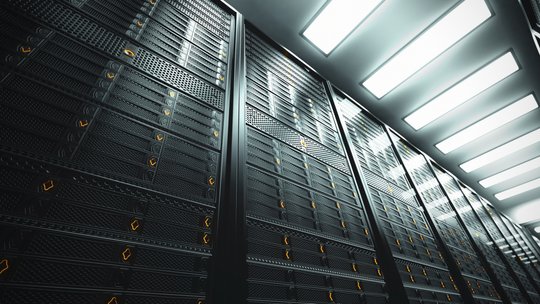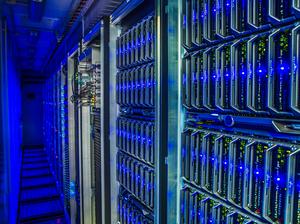
The tech industry joined Eastern Oregon lawmakers and the state’s biggest business group in denouncing a bill that would impose greenhouse gas emissions standards on data centers and crypto mining operations.
Their critiques, offered at a legislative committee public hearing on Monday, came despite concessions on several points by proponents.
“We want to warn this committee that this legislation will force companies to seriously reevaluate their plans for Oregon and jeopardize the state’s efforts to build an inclusive world-class innovation economy,” Peter Brown, representing TechNet, told the House Committee on Climate, Energy, and Environment. TechNet’s members include major Oregon data center players such as Meta, Apple, Google and Amazon.
House Bill 2816, sponsored by Rep. Pam Marsh (D-Ashland), is being debated two years after Oregon adopted ambitious emissions-cutting goals for investor-owned utilities Portland General Electric and PacifiCorp, but not consumer-owned utilities.
Some of those “COUs” in Eastern Oregon have seen their emissions rise dramatically as they stretch beyond federal hydropower allocations to serve data centers. The Oregonian reported last year that Umatilla Electric Cooperative’s GHG emissions per megawatt-hour rose 543% from 2010, the year before Amazon opened a data center served by the utility, to 2020.
Emissions rose sharply again in 2021, nearly doubling from 2020, according to more recent state data.
Amendment offered
A bill amendment outlined on Monday mandates emissions 80% below a baseline that reflects typical U.S. grid emissions by 2030, then 90% below the baseline by 2035, and all clean energy by 2040. That’s along the lines of the reductions required of PGE and PacifiCorp. Data centers served by those utilities aren’t covered under the bill on the presumption that their grid power is getting cleaner.
Bill proponents acknowledge that most data center operators are intent on running on clean energy. The bill is needed, they say, to protect against bad actors and crypto operations that might be drawn to the state.
Their amendment eliminates a 60% reduction target in 2027, exempts existing operations and provides a “reliability pause” for facilities that run into issues finding clean energy. It also jettisons a threat to penalize noncompliant facilities by stripping them of the enterprise-zone tax breaks, which are crucial to making Oregon an attractive place to set up shop.
All that indicated the “light touch” proponents were taking, Joshua Basofin of Climate Solutions, a key backer of the bill, said.
Data centers are necessary, “provide local benefits through jobs and economic development” and most operators are making “laudable progress” on ambitious clean energy goals, Basofin testified. But he noted Amazon’s proposal to use fuel cells that oxidize natural gas at data centers near Boardman.
“Why regulate an end user? This is the answer,” Basofin said. “A very large and growing cluster of data centers using fossil fuel power indefinitely could begin to derail Oregon's clean energy transition.”
Lawmakers: Region, industry singled out
Eastern Oregon lawmakers — those on the committee and others who trooped to the hearing to testify — remained vehemently opposed.
“I can’t think of another statewide energy policy that so narrowly calls out a specific industry or industries,” Rep. Daniel Bonham (R-The Dalles) testified. “This bill may not set a precedent, but it certainly opens the door for end-user regulation. It’s clear that this proposed policy isn’t considering the long-term ramifications of sending businesses to other states.”
“I don’t normally make it a point to testify on bills that are not in my chamber, but this particular bill is such an attack on my part of the state that I feel compelled to weigh in here today,” Sen. Bill Hansell (R-Athena) told the committee. “House Bill 2816 will severely impact Oregon's ability to draw business to the state. Oregon has been able to attract data centers to the state with access to land, energy, water and incentives. But no matter how much we incentivize companies to come here, a bill like this could easily scare potential new businesses, or drive existing businesses away.”
Oregon Business & Industry joined in that messaging.
“Eastern Oregon is already disadvantaged as compared to the more populous west side,” Sharla Moffett, the group’s senior policy director, said. “We cannot imagine why policymakers would choose to restrict economic opportunities for one region of the state that does not enjoy the same economic privilege as another region does when so much policy discussion is focused on addressing the needs of underserved communities.”
The bill is set for a work session, where a vote could take place, next Monday.






